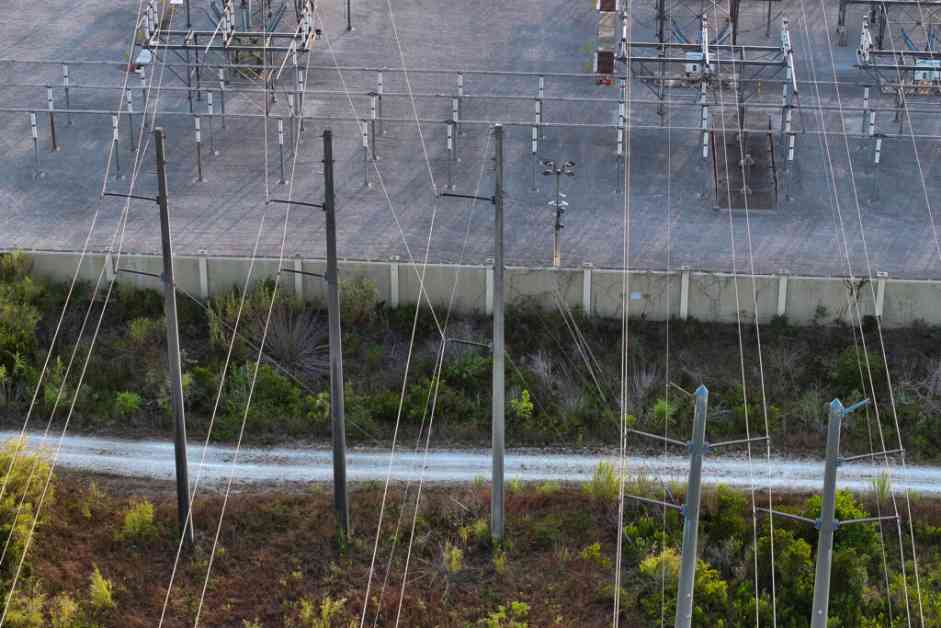Federal Regulator’s Decision Sparks Controversy Over Energy Projects Approval
The recent approval by the Federal Energy Regulatory Commission (FERC) of PJM Interconnection’s proposal to prioritize 50 power projects, including nuclear and gas-fired plants, over stalled renewable energy projects has stirred up a storm of criticism. Critics are decrying this move as setting a dangerous precedent that favors expensive fossil fuels and undermines the push for renewable energy resources. This decision has also raised concerns about the growing divide between PJM’s reliability strategy and state-led initiatives for clean energy.
Reliability Resource Initiative: A Closer Look
PJM’s Reliability Resource Initiative (RRI) aims to expedite the development of new nuclear and fossil fuel generation projects to address anticipated energy shortages by 2026. This initiative comes as coal plants are retiring, and there is a surge in demand from data centers and increased electrification. PJM, which serves as the grid operator for the District of Columbia and parts of 13 states across the mid-Atlantic, South, and Midwest regions, has emphasized the importance of dispatchable power, such as natural gas, in ensuring grid reliability.
Clean energy advocates argue that renewables and battery storage could provide an equally reliable solution if given a fair opportunity. They contend that PJM’s current rules favor fossil fuel plants that are capital-intensive and slow to build, complicating the achievement of states’ clean energy goals.
In its decision, FERC supported PJM’s argument that a one-time arrangement was necessary to prevent potential electricity shortages by 2030. By allowing 50 large power projects to proceed, PJM and FERC aim to meet the rising energy demand and maintain grid reliability. The selection of these projects was based on their impact and readiness, prioritizing those that are most essential and reliable, especially in regions facing significant power supply challenges.
Response and Criticism
However, not everyone is in agreement with this decision. Commissioner Judy Chang criticized PJM’s scoring system for prioritizing project size over speed, expressing concerns that this approach may not bring new power online quickly enough to address reliability risks in the near term. She highlighted the preference for larger, complex projects that face permitting delays, supply shortages, and transmission bottlenecks, neglecting faster, grid-ready renewable projects.
Clean energy advocates, including Tom Rutigliano from the Natural Resources Defense Council, view FERC’s decision as a dangerous precedent that extends emergency measures beyond their intended scope. The focus on project size over completion dates raises doubts about the effectiveness of the RRI in addressing the reliability challenges within the desired timeline. Rutigliano underscored the importance of market competition in solving energy issues rather than picking winners and losers through initiatives like the RRI.
Ada Statler from Earthjustice raised concerns about PJM’s calculation methods, highlighting the need to consider other sources of new generation that could bridge the gap without compromising existing resources or impeding state climate policies. She questioned the transparency of PJM’s procedures and emphasized the potential market uncertainties created by the RRI, impacting developers’ ability to plan for future projects.
Consumer advocates argue that PJM’s lack of transparency may contribute to rising electricity prices across its service area. The Maryland Office of People’s Counsel cautioned that speculative growth projections could lead to inflated demand forecasts, prompting PJM to accept unreliable data in its decision-making process.
Looking Ahead: Calls for Reform
To address these concerns, advocates are urging FERC to adhere to existing rules, such as Order 2023, which aims to streamline the process of connecting new power projects to the grid. By grouping projects together and enhancing transparency, this approach can accelerate the interconnection process, reduce delays, and facilitate the integration of renewable energy projects into the grid more efficiently.
Jacob Mays, an assistant professor at Cornell University, anticipates more ad hoc modifications like the RRI in energy systems nationwide due to ongoing challenges with the queue process. While short-term fixes may offer temporary relief, Mays emphasizes the need for fundamental reforms to ensure predictability and stability in the long run.
In conclusion, the decision by FERC to approve PJM’s plan has sparked a heated debate within the energy sector, with stakeholders voicing concerns about the prioritization of fossil fuel projects over renewables and the potential implications for grid reliability and clean energy goals. As the energy landscape continues to evolve, the need for a balanced and transparent approach to project approvals becomes increasingly critical to meet the dual objectives of reliability and sustainability.














